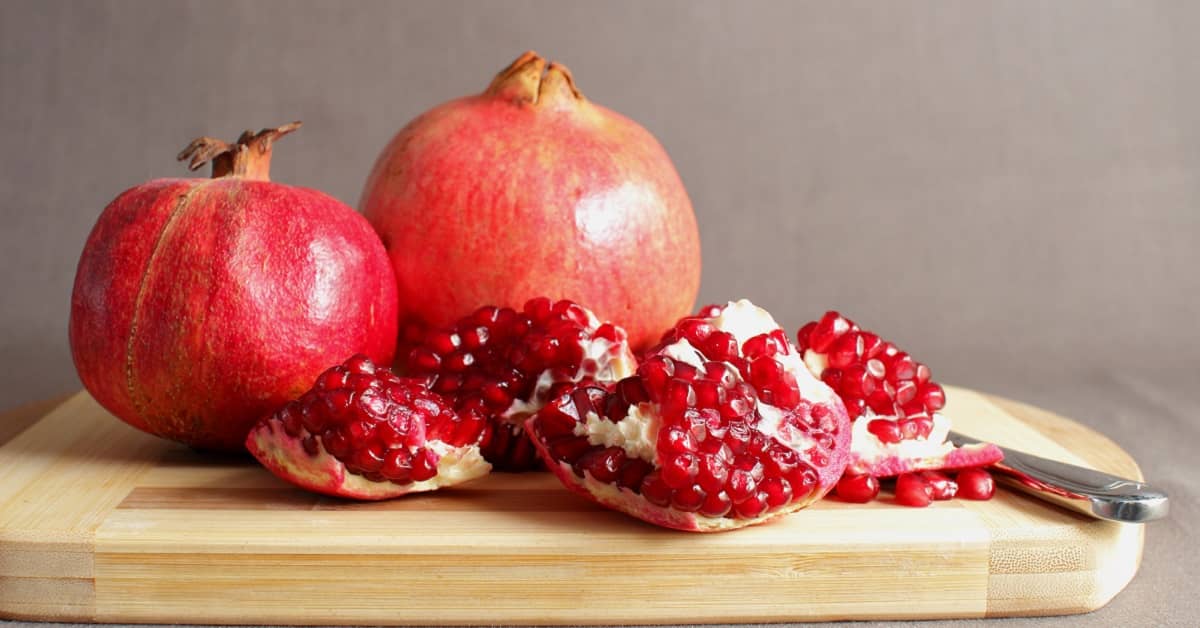
It’s overflowing with antioxidants and other natural chemicals that help the body fight off cellular damage and illness. And a wealth of research shows how it defends the brain, protects the muscles, suppresses cancer, lowers the risk of gout and helps the body heal.
On the way to those benefits, studies show, the phytonutrients in this amazing fruit boost the energy-making abilities of virtually every cell in the body, giving it remarkable anti-aging power.
I’m talking about the pomegranate. It’s a tasty fruit that’s been revered for its health benefits for thousands of years. Some Biblical scholars once believed that the fruit Eve used to tempt Adam was a pomegranate, instead of the apple.
As I’ve often mentioned, one of the difficulties your body runs into as you get older is the tendency of your immune system to become stuck in a state of chronic inflammation. Immune cells become overactive and, instead of helping the body heal, they can attack your own cells and organs.
But pomegranate can help.
Reduces Chronic Inflammation
Researchers at the University of Louisville in Kentucky, with an assist from scientists in India, have found that the natural chemicals in pomegranate can ease chronic intestinal inflammation that leads to inflammatory bowel disease (IBD).The researchers note that ulcerative colitis and Crohn’s disease, two forms of IBD, often result when the protective systems in the gut break down.
Normally, the intestinal tract depends on a layer of what are called epithelial cells to bar toxins and other irritating substances from getting into the body and causing damage. To maintain this barrier proteins are present that keep the spaces between the cells tight and impermeable. But when these proteins are reduced -- which can happen with age or from chronic inflammation -- toxins and other problematic substances leak into the body and bloodstream. These foreign invaders can stimulate the immune system to attack.
However, the natural chemicals in pomegranate can be used by the probiotic bacteria in the intestines to make a substance called urolithin A that restores a healthy barrier in the intestinal wall and squelches harmful inflammation.1 The lab study in Kentucky demonstrates that the compounds that result from consuming pomegranate can both prevent the compromise of the epithelial barrier before IBD develops, as well as heal the gut wall after it has started to suffer damage.
Keep the Heart Beating
Another crucial benefit for the urolithin A that probiotic bacteria make from pomegranates is the compound’s ability to help the heart muscle – and all muscles – stay healthier as you age.According to researchers in Asia, this compound could be crucial for fighting against heart failure and other cardiovascular difficulties that are the leading cause of death worldwide.2 They point out that maintaining the functionality of mitochondria – energy producing organelles – in heart muscle cells “is an essential process for cardiovascular homeostasis and cardiac health.”
Urolithin A, according to a wealth of studies, is, as Swiss scientists note, “perfectly suited for inducing a molecular signature of improved mitochondrial and cellular health.”3 In other words, it’s just what the doctor ordered for aging hearts.
Other pomegranate benefits include:
- Better brain health: A study in Asia shows that urolithin A may lower brain inflammation and trigger the growth of new neurons.4
- Reduced risk of cancer: Research shows that a compound in pomegranates called punicalagin can lower the risk of cancer as well as make some cancers less aggressive.5
- Less chance of gout: Studies in Japan demonstrate that urolithin A can reduce levels of uric acid in the blood which is a risk factor for gout.6
- Longer life, if animal studies bear out in humans: If you want further evidence for pomegranate’s benefits, a lab test in Switzerland found that urolithin A could potentially extend life expectancy by more than 45 percent in lab animals.7
Luckily pomegranate juice or frozen pomegranate is available year-round while fresh pomegranates can be bought in supermarkets in the fall. You can also take pomegranate in supplement form. I find the juice too sweet, so I prefer the supplements to avoid the big dose of sugar.
- https://pubmed.ncbi.nlm.nih.gov/30626868/
- https://www.ncbi.nlm.nih.gov/pmc/articles/PMC7098821/
- https://www.nature.com/articles/s42255-019-0073-4?fbclid=IwAR3Jwup83RkRxzxPEMRLe72hMVhNXrfHwXpLiqiUkgfbwQSQ-tdaQYdi8P0
- https://www.ncbi.nlm.nih.gov/pmc/articles/PMC6417212/
- https://pubmed.ncbi.nlm.nih.gov/33148374/
- https://www.ncbi.nlm.nih.gov/pmc/articles/PMC7662530/
- https://pubmed.ncbi.nlm.nih.gov/27400265/
